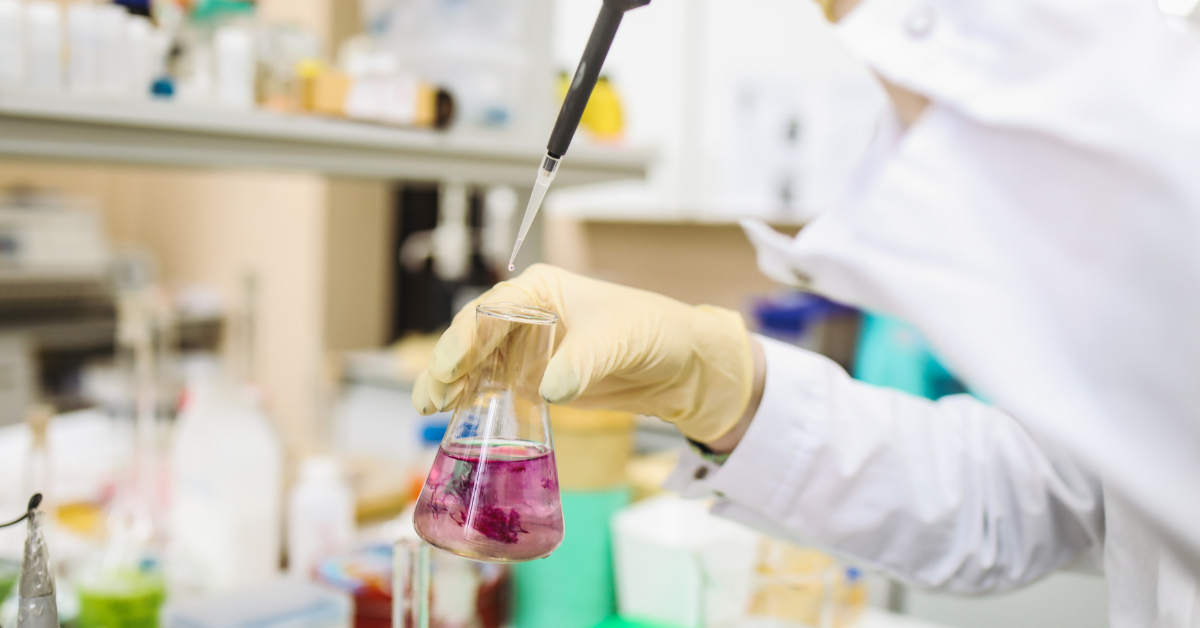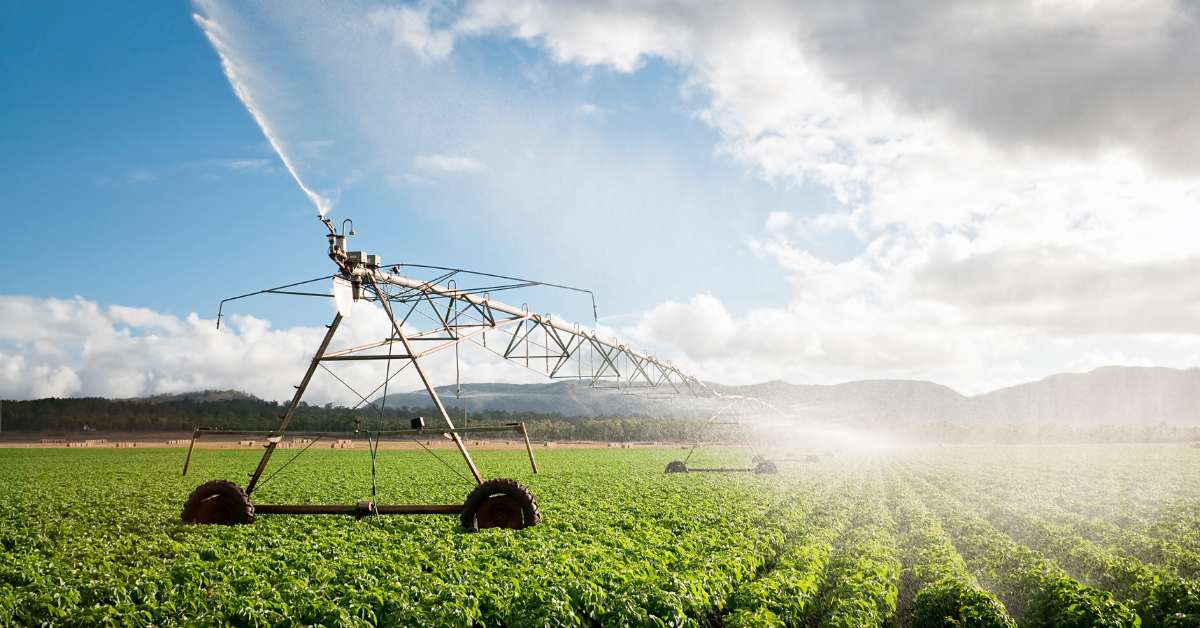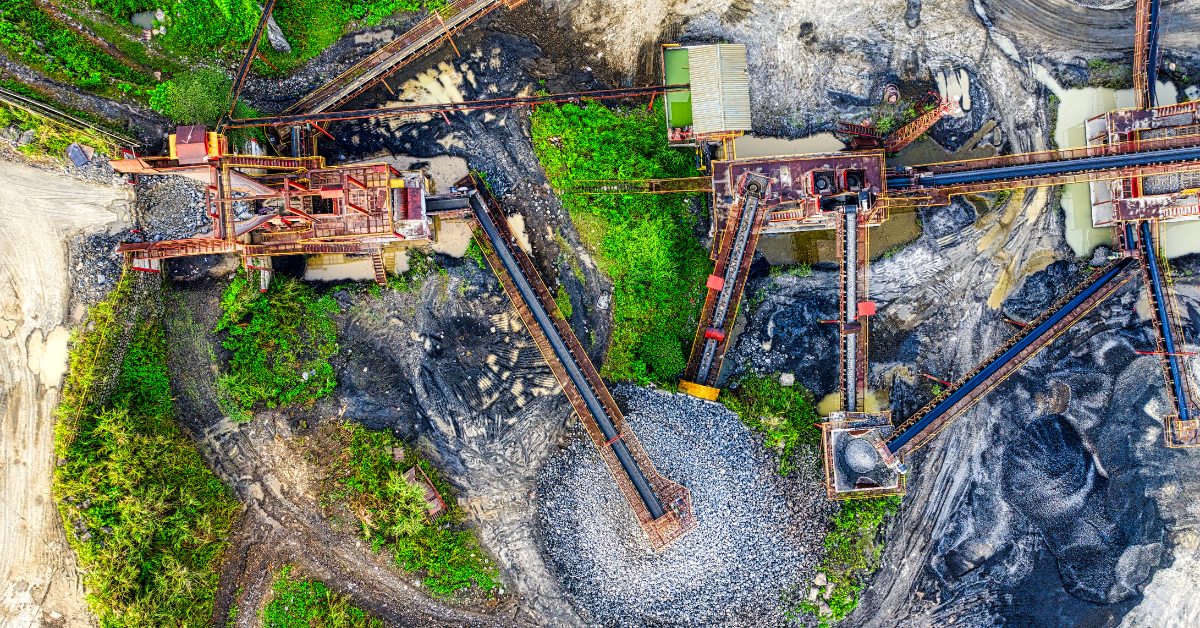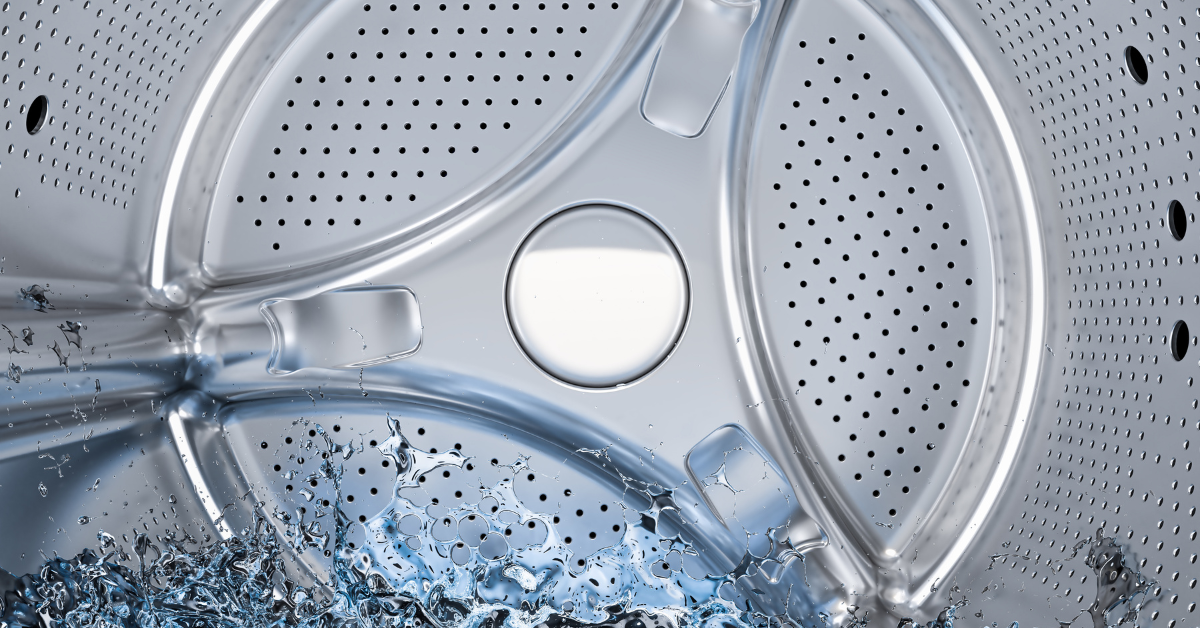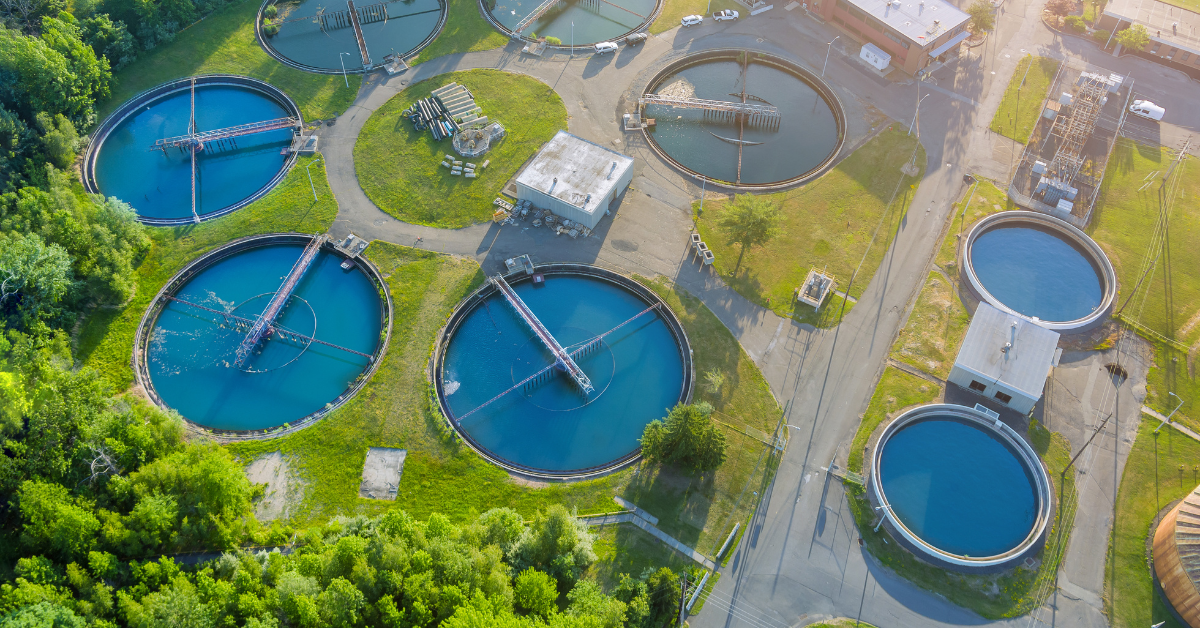As we confront the global water crisis, the urgency to address water scarcity and quality issues with clean water solutions has never been more apparent. Access to clean and safe water remains a fundamental need; yet millions around the world continue to grapple with its scarcity and contamination. Luckily, now technologies are being developed that can successfully address top water challenges.
Introduction: Facing the Water Crisis
The world is facing a profound water crisis characterized by the twin challenges of scarcity and deteriorating quality. Despite its abundance, water scarcity is a reality for many, driven by factors such as population growth, urbanization, climate change and unsustainable water management practices. Concurrently, water quality degradation poses significant risks to human health, ecosystems and economies.
According to a report from non-profit WWF, more than 60% of global gross domestic production (GDP), the number of goods and services produced annually, are being threatened by the water crisis. The estimated economic value is in the trillions. In the face of these challenges, urgent action and clean water solutions are required to ensure a sustainable water future for all.
Water Scarcity: A Growing Concern
The scarcity of water is not a distant threat; it is a reality faced by millions every day. Rapid population growth, urbanization, climate change and unsustainable water management practices are exacerbating this issue. According to the United Nations, by 2025, two-thirds of the world’s population may face water shortages.
In regions already grappling with water scarcity, the situation is dire. Agriculture, industry and households compete for limited water resources, leading to conflicts and socio-economic instability. Moreover, marginalized communities, especially in developing countries, bear the brunt of water scarcity, facing health risks, food insecurity and economic hardship.
Water Quality: A Silent Crisis
While water scarcity garners much attention, water quality often remains a silent crisis. Contamination from industrial waste, agricultural runoff, inadequate sanitation and pollution threatens the health of both humans and ecosystems. Unsafe drinking water contributes to waterborne diseases and health concerns. A USGS report found that at least 45% of US tap water is contaminated with the “forever chemical” PFAS.
The consequences of poor water quality extend beyond health. Polluted water bodies harm aquatic biodiversity, disrupt ecosystems and compromise food security. Moreover, industries reliant on water face operational risks and regulatory scrutiny, affecting their sustainability and profitability.
A Call to Action for Immediate Clean Water Solutions
Addressing water scarcity and quality challenges with clean water solutions requires collective and rapid action at local, national and global levels. Governments, businesses, civil society organizations and individuals must collaborate to implement sustainable water management practices, invest in water-focused technologies and promote water conservation.
Action is already being taken at all levels. To raise awareness, the United Nations has deemed March 22 to be World Water Day. In the United States, new policies and regulations are also continually being developed at the national, state and local levels. Examples include:
Nationwide Water Regulations:
- Clean Water Act (CWA): While not recent, the CWA is a foundational piece of legislation that governs water pollution in the United States.
- Safe Drinking Water Act (SDWA): This act ensures the quality of Americans’ drinking water, including new standards for contaminants and treatment requirements.
- Best Management Practices (BMPs): These are guidelines or practice recommendations made across different industries to protect water quality. In agriculture, these often involve fertilizer restrictions in certain areas near watersheds to prevent nutrient pollution from run-off.
State-Specific Water Initiatives:
- California Water Restrictions: Given its history of droughts, California often leads in water conservation measures. Recent regulations have included restrictions on water usage for landscaping and agriculture.
- Arizona Groundwater Management: Arizona has implemented laws to manage its groundwater resources better, including restrictions on well drilling and requirements for water conservation plans in certain areas.
- Colorado River Basin States Agreement: States that rely on the Colorado River have been negotiating agreements to reduce water use.
Other initiatives focused on sustainable water management include restrictions on lawn water and agricultural irrigation practices (especially in arid regions,), regulations that promote the reuse and recycling of water for irrigation and industrial processes, bans on use of certain chemicals in products that are released directly into waterways and more.
Businesses have a crucial role to play by these integrating sustainable water management practices into their operations, minimizing usage, treating wastewater and investing in innovative solutions.
Did You Know?
Today, 3.6 billion people worldwide live in water-stressed areas, which will grow to affect more than half the world’s population by 2050. As soon as 2030, the world will be using 56% more water than is sustainable.
The Challenge: A Need for Sustainable Water Management
The imperative need for sustainable water management has never been more urgent, as industries worldwide face escalating demands to address the twin challenges of water quality and scarcity. To confront these issues effectively, there’s a pressing need for technologies that can tackle various aspects of the water crisis:
- Reduce Water Runoff in Soil: Enhancing the soil’s water-holding capacity and aeration is essential for mitigating soil compaction and runoff, which can contribute to water scarcity and quality degradation. Technologies focused on improving soil structure, promoting free movement and increasing carbon sequestration play a crucial role in minimizing water runoff and maximizing water retention within the soil profile.
- Lower Water Consumption: Many industries face significant challenges related to high water consumption in their operations. Implementing technologies that lower or optimize usage, such as recycling and reuse, and adopting energy-efficient practices can help reduce the environmental footprint of industrial processes while conserving precious water resources.
- Enhance Water Quality: Contaminated discharges and runoff pose significant threats to watershed integrity and water quality. Technologies that facilitate effective wastewater treatment, such as remediation processes, are essential for mitigating pollution and safeguarding water resources. Additionally, implementing best management practices can help prevent sediment and nutrient runoff, preserving water quality in surrounding ecosystems.
By investing in and adopting innovative technologies and practices tailored to address these challenges, industries can play a pivotal role in promoting sustainable water management practices.
A Clean Water Solution: Biosurfactant-Based Technologies
An Ohio-based biomanufacturing company, Locus Fermentation Solutions (Locus FS), has found immediate and effective answer to global water challenges. The company turns naturally existing, non-GMO 100% bio-based ingredients (microorganisms and biosurfactants) into customized solutions that profitably address a variety of sustainable water management challenges, including runoff, consumption and quality issues.
Locus Fermentation Solutions has already commercialized a diverse range of biosurfactant-based technologies in key industries, including agriculture, consumer products, oil & gas, mining and industrial. The solutions replace chemical usage, minimize runoff and waste, lower water usage in water-intensive applications and enable recycling and reuse.
Every biosurfactant-based solution is designed to empower companies to enhance their bottom line through sustainable water management. The comprehensive suite of offerings not only addresses water quality and scarcity challenges, but also delivers tangible benefits, including optimized performance, improved return on investment (ROI) and the preservation of stakeholder value.
Clean Water Solutions for Key Global Industries
Locus FS’ sustainable water management technologies are launched through industry-specific operating divisions:
Agriculture
Improving Water-Use Efficiency & Soil Quality
Water is a critical resource for crop production. Agriculture uses 70% of the world’s freshwater. Farmers and agricultural experts are implementing innovative strategies to enhance water-use efficiency while mitigating challenges related to soil quality and compaction.
Water scarcity is devastating to farmers – with the problem only expected to worsen with climate change. Overwatering, combined with over tillage and use of heavy equipment, has also caused loss of topsoil and removal of soil organic matter, which reduces plant productivity and causes waterlogging that promotes runoff. Further, more than 80% of agricultural soil is compacted, impacting productivity and contributing to run-off.
The Locus Agriculture division has developed products that can increase water holding capacity of soil and water-use efficiency of the plant. One treatment successfully penetrates compacted soils. This reduces erosion risks, enables water to be distributed more freely, increases water-holding capacity of soil and can improve water-use efficiency and uptake.
Another product increases carbon sequestration, resulting in more soil organic carbon. This is important because according to the USDA, every 1% increase in soil organic carbon per acre can result in up to 25,000 gallons of soil water available.
Replacing Chemical Use in Agricultural Adjuvants
Many commonly used products in commercial farming have residual toxicity concerns. They often contain chemical ingredients that contain potential Prop 65 trace carcinogens, including formaldehyde, 1,4-dioxane and residual ethylene oxide. When not taken up by the plant, these residuals can contribute to groundwater and surface water pollution.
The agriculture industry is embracing alternatives to traditional chemical inputs, aiming to minimize their impact on water ecosystems. Avoiding runoff of these inputs helps protect waterways from pollution, preserve aquatic ecosystems and support biodiversity. Nutrient pollution, particularly from excess fertilizers, can lead to eutrophication, harmful algal blooms, and degraded water quality in lakes, rivers, and coastal areas.
Locus’ biosurfactants can be used as ingredients to replace chemicals, namely surfactants, in agricultural adjuvants. This includes pesticides, herbicides and fungicides. Replacing these potentially harmful ingredients with biosurfactants limits the impact on water quality, biodiversity and ecosystems.
Energy (Oil & Gas, Mining)
Reducing Water Usage from Hydraulic Fracturing
Hydraulic fracturing is a water-intensive operation crucial for extracting otherwise inaccessible oil and gas resources. In addition to requiring millions of gallons of water per single well, the process generates significant volumes of flowback water that must undergo proper treatment prior to disposal or reuse.
Recognizing the significant water demands of hydraulic fracturing and drilling activities, efforts are underway to minimize water consumption and reduce environmental impact. One approach involves using alternate extraction methods that can maintain production with substantially less resource consumption.
The Locus Bio-Energy division has developed biosurfactant-based treatments that can enhance oil recovery through stimulation of existing wells. This allows for improved production without the carbon and water intensity typically associated with hydraulic fracturing and drilling activities. The oil and gas division is also making advancements in water recycling and treatment technologies to enable reuse of produced water, minimizing freshwater usage and reducing the need for disposal.
Improving Saltwater Disposal Well Efficiency
On average, five barrels of saltwater are produced for every barrel of crude oil in the U.S., plus 260 barrels of water for every million cubic feet of natural gas. This water contains suspended solids, grease and even naturally occurring radioactive materials. It must be safely disposed of in a decreasing number of new water injection wells. Saltwater disposal (SWD) facilities have been increasingly linked with localized seismic activity, prompting regulations to reduce saltwater injection rates in some regions.
As more SWD demand concentrates on fewer disposal wells, higher injection volumes per well are also needed. Many operators are turning to chemical solutions but are finding that traditional injectivity aids are often ineffective.
The Locus Bio-Energy division has developed biosurfactants that can be used in injectivity aids for saltwater disposal. These biodegradable additives are more effective at lower dosages, reducing costs while increasing water filterability rate. They help ensure the responsible handling of produced water and safeguarding of groundwater quality.
Boosting Mineral Extraction
Water risks are translating into higher costs for mining operations. The mining industry relies heavily on water for various purposes, including quarrying and stockpiling dust suppression, mineral processing (e.g., grinding and flotation) and slurry tailings transportation. However, major global mining operations are often situated in remote areas with limited water resources like Chile, Saudi Arabia and South Africa. For instance, Chilean mines consume roughly 70 cubic meters of fresh water to produce just 1 ton of copper.
This issue is compounded as mining companies increasingly shift their focus towards lower-grade ores, requiring even more water to extract the same quantity of ore. Because of this, the mining sector is searching for sustainable practices that improve mineral extraction while minimizing water needs.
The Locus Mining division has developed biosurfactants that can unlock stranded critical minerals traditional synthetic chemicals can’t reach, while also boosting the profitability and sustainability of mining operations. These eco-friendly reagents drastically improve extraction effectiveness and recovery, which in turn reduces water requirements and consumption needed for processing.
Consumer Packaged Goods (CPG)
Optimizing Detergent Uses
Detergency is a water heavy application in consumer products and industries such as textiles that is a leader in water intensity. Detergents also have negative impacts on water quality and aquatic systems. Because of this, the CPG industry is actively working to reduce water usage in detergent and wash applications, recognizing the environmental impact of traditional cleaning products.
In addition, more focus is being put on the environmental impact of the ingredients used in these products. States like New York have put laws into place to restrict or ban the use of chemicals ingredients that contain emerging contaminants, like Prop 65 chemicals and 1,4-dioxane, in products like detergents. CPG companies are also being encouraged to use ingredients listed on the Environmental Protection Agency (EPA) CleanGredients list which are approved for use in Safer Choice label products.
Biosurfactants offered through the Locus Ingredients division can be used in detergents to replace chemicals and eliminate contaminant and aquatic toxicity concerns. When biosurfactants are used as a detergent additive, they enable the formulation to require lower dosages and less rinse water. By developing more concentrated formulas and incorporating these water-saving technologies, companies can create detergents that achieve effective cleaning results with less water usage.
Additional R&D
The applications highlighted above represent only a fraction of the potential uses of Locus Fermentation Solutions’ biosurfactants. Beyond these, there exists a multitude of other applications with demonstrated potential found through the company’s ongoing research and development efforts. These include enhancing consumer and animal hydration, improving the efficiency of wastewater treatment across industrial and municipal sectors, reducing the volumes of water required in construction and more.
What sets Locus Fermentation Solutions apart is the relentless commitment to research and development. The company’s 1,400+ patent filings demonstrate the versatility of the biosurfactants and their potential far-reaching impact. As innovation continues to unfold, the possibilities for leveraging these biosurfactants to address diverse water-related challenges remain promising.
Conclusion: Let’s Do More with Less
In a world where the demand for clean water solutions continues to rise, the imperative to do more with less has never been more pressing. Fortunately, advancements in technology offer promising avenues to confront these challenges head-on.
Locus Fermentation Solutions exemplifies this with the biosurfactant-based technologies that offer immediate and effective responses to global water challenges across various sectors. By leveraging the power of biosurfactants, the Locus team enables companies to enhance water quality, reduce consumption and mitigate environmental impact—all while achieving superior performance.
The approach empowers industries to achieve more with fewer resources while prioritizing the preservation of our planet’s most precious resource: water. Because every drop of water saved is a step toward a more sustainable future.
Companies like Locus are embracing the challenge to do more with less, leveraging clean water solutions to safeguard the environment and preserve water resources. By utilizing innovations like biosurfactants across global sectors, the journey to a water-wise world is within reach.
READ MORE: Biosurfactant Applications: Powerful, Sustainable Solutions for Every Industry
Biosurfactants are organic compounds produced by microorganisms. These versatile molecules possess unique surface-active properties, making them invaluable across a spectrum of industries. Unlike their synthetic counterparts, biosurfactants are biodegradable, environmentally friendly and exhibit low toxicity. These bio-based agents are ushering in a new era of industry-wide eco-innovation.

